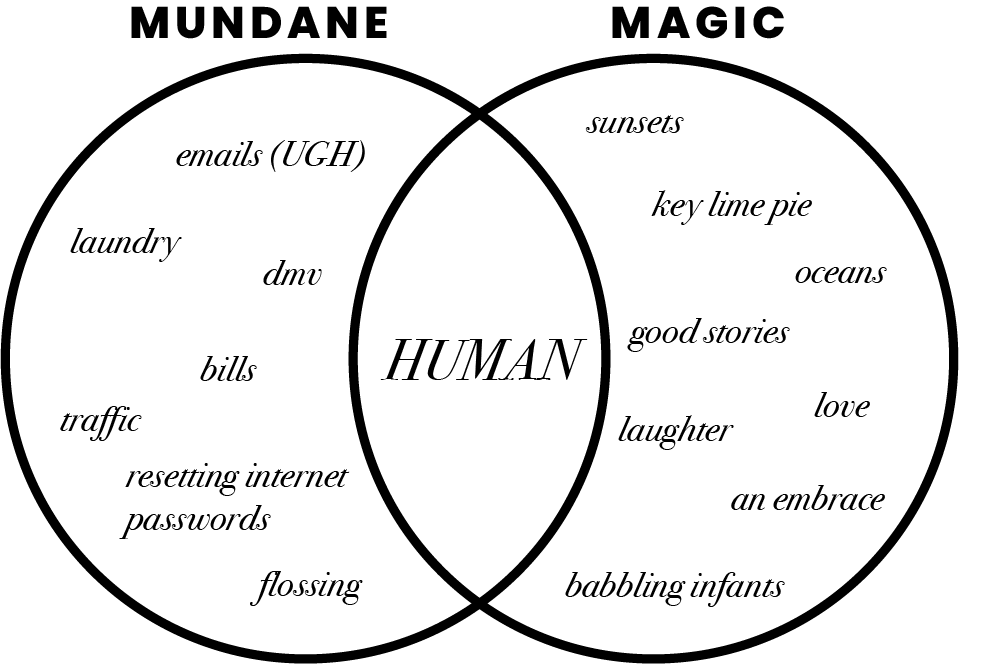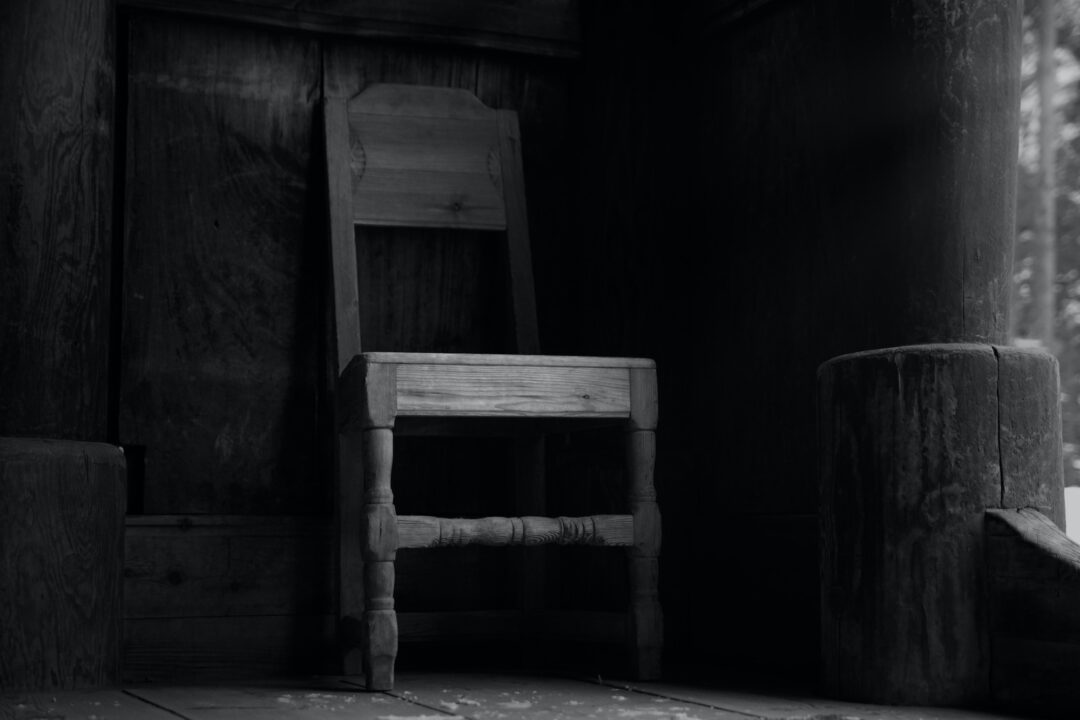I was walking out of the CVS parking lot, carrying my meds and a 5-foot long receipt that refused to fit in my pocket. An old Volkswagen began backing up towards me. I stopped, but it did not. The driver didn’t see me or my long receipt, so I yelled out in panic and waved the receipt like a banner. He slammed on the brakes, inches away from hitting me.
The old man poked out his head. And get this, he was giggling. To be clear, I was not giggling. I was angry and shaken. Typically, I don’t appreciate people giggling after almost crumbling me with their car.
Instead of apologizing, he looked at me, smiled through his beard, and said this phrase,
“stay on your toes.”
I was still angry, and he was still crazy, but maybe the old giggler was a prophet. Staying on your toes is brilliant advice.
Distraction Leads To Tongue-Holes
When I played shortstop in baseball, my coaches said the same phrase, “stay on your toes.” If you sit back on your heels and the batter hits a ground ball, your body is not alert.
Baseballs are hard. When hit with a metal bat, they spring off with serious speed. I saw one distracted kid field a ground ball with his jaw and it caused him to bite through his tongue. There was a lot of blood.
It comes fast. If you are not alert and awake, the ball could catch you off-guard.
How many of us plod through life distracted and unaware? Instead of being alert in the present moment, we rehash the conflict we had at work or fret about the tasks yet to complete.
The Power To Slow Down Time
Time is weird. You know what I’m talking about. When you were a kid, summer seemed to last a lifetime. Long empty days, trips to the lake, vacations, and water-guns. But as an adult, it’s a feverish and quick two months. Or your normal commute can appear to be a time-traveling event—you arrive at the destination without remembering the journey. But if you are running late to an interview, you notice each red light and the drive lasts an eternity.
David Eagleman is a neuroscientist who studies this phenomenon. In a brilliant article in The New Yorker, he says this,
“The more detailed the memory, the longer the moment seems to last. “This explains why we think that time speeds up when we grow older,” Eagleman said – why childhood summers seem to go on forever, while old age slips by while we’re dozing. The more familiar the world becomes, the less information your brain writes down, and the more quickly time seems to pass.”
Eagleman’s research has shown that the more senses and brain resources we use in a moment, the more it appears to slow down. But the more familiar something is and you don’t focus, the more the moment slips by.
In other words, noticing things around us and being alert, can slow down our brain’s perception of time. Tuning your ear to the leaves swishing in the wind. Watching with wonder as the water flows from the faucet. Feeling the coolness of the table. As we increase our senses’ awareness, time slows down.
When we are distracted or stuck in a numbing routine, it’s as if we are losing minutes and years. Time rushes by.
Again, Eagleman from The New Yorker article:
“Time is this rubbery thing,” Eagleman said. “It stretches out when you really turn your brain resources on, and when you say, ‘Oh, I got this, everything is as expected,’ it shrinks up.”
When we’re in life-threatening situations, for instance, “we remember the time as longer because we record more of the experience. Life-threatening experiences make us really pay attention, but we don’t gain superhuman powers of perception.”
The same thing happens when we hear enjoyable music, because “greater attention leads to perception of a longer period of time.”
We have all experienced this sensation. There are moments we are so alert, the world feels like it is moving in slow motion. Other times, though, the hour’s race by without us noticing.
The Walking Dead
I am convinced this is why zombie movies are horrifying. It’s not the deteriorating flesh or the apocalypse-shaped world. It is a deeply rooted fear that this is an image of us. We are plodding through life like a zombie. Unaware. Not alert. Stumbling in a stupor, chasing our carnal desires with no purpose.
- Distractions Abound: Instead of paying attention to the moment, we occupy our brains with screens and influencers and TikTok dances and worries.
- Numbed To the Core: Rather than immersing our senses, we numb ourselves with food, drink, and devices, out of fear for the pain our feelings may bring.
- Routines and Ruts: We do what we’ve always done because it is comfortable and easy. We don’t try new things or step out of the familiar.
- Stuck in the Future or Past: Instead of dealing with the things happening now, we fret about future problems and concerns. Or we mull over the mistakes and regrets of the past.
This is no way to live unless you are a zombie.
Living Alert and Aware
So, how can we stay on our toes? How can we wake up and experience the fullness of each moment?
- Notice It All
Activate your senses and immerse yourself in each moment. Learn to feel the hard chair. See the wood grain of the table. Hear the giggles. Smell the morning dew. These senses shake us awake and remind us we are alive in this moment. We are not walking dead.
- Switch It Up
The world is weird and delightful. Let it surprise you. Take a different path home tomorrow. Don’t eat burgers tonight, try cooking something elegant with odd ingredients. Take an online calligraphy course. Do whatever it takes to catch your mind off guard.
- Visit Someplace New
New experiences and environments require us to activate our brains, causing us to slow down. Instead of your normal grocery store, visit the local Korean market. Take a weekend trip to a small town without researching it. Go to a local and highly specific museum (there is a lace museum in my town. Dedicated to lace and lace-making!)
I’m grateful for the old giggly man and his Volkswagen. But I hope it doesn’t always take being nearly hit with a car, or a near-death experience, or a pandemic to remember to stay on our toes and become aware of this incredible gift of life exploding in each moment.
May we stop stumbling around like zombies and wake up to the wonder.
Sign up for my writings in your inbox:






4 Comments
I love this. Thank you for putting it into this framework. I gave up reading news non-related to my work, social media from people who don’t know me and video games on my iPad for Lent. I have since had two anxiety attacks but have also realized I was using the things I gave up to numb my senses. I’m learning to feel all the time again and it isn’t as bad as I thought it would be. Strangely I’m starting to feel “whole” again.
Oh wow, thanks for sharing. I couldn’t agree more. I’m in the process of renegotiating my contracts with social media and news. I’m becoming more AWARE of what it does to my brain and emotions. I also love your word, “whole.” I think that is the goal. Wholeness and fullness and peace in each moment. Thanks!
Love this, Adam. I have been recently “diagnosed” (better: made aware” that I am) an HSP (Highly Sensitive Person), which means I have the opposite problem: I cannot turn my awareness OFF! Sights, scenes, faces, noise and smells are all a part of my daily processing. But this essay is just as important for me since I am learning to be cognizant of the overwhelm as much as others are heeding their underwhelm. It’s really the path of a tightrope walker to figure out how to stay in balance.
Thanks Nikki! Very interesting. I’d love to hear more about HSP sometime. I think I have some inklings of that (maybe my daughter too.) Part of it, for me, is the sensitive artist piece. But my problem is I have learned to numb and distract these senses so I don’t have to “feel” so much. I agree with the “tightrope” metaphor. We’re trying to navigate that with our daughter. We don’t want her to think her emotions or sense are bad, but also want to help her navigate them in a healthy way. Let me know if you have tips and tricks!